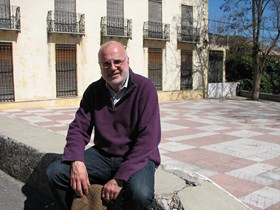
Michael Jacobs, The Robber Of Memories, Granta (£16.99)
It is impossible to write a book about Colombia, particularly the Magdalena river which runs to its heart, without invoking the presiding spirit of Gabriel García Márquez. It is the river that Márquez uses at the end of Love In The Time Of Cholera for what Michael Jacobs describes as ‘a meditation on the persistence of love over the years’, as the elderly protagonists make one final journey along its length; it is the river so central to Colombian identity that elsewhere Márquez titled an essay ‘The Magdalena: The River Of Our Life’; and it is the river that Márquez himself travelled down as a 15-year-old on one of the last paddle steamers, an experience that left an indelible impression on him.
By good fortune, Jacobs chances on the now frail and elderly Márquez in Cartagena before beginning his book and journey. ‘Gabo’, as the Colombians nickname him, has been suffering from memory loss for some time, and rarely returns to Colombia, but movingly asserts that he ‘remembers everything about the river, absolutely everything: the caimans, the manatees…’
.
In following his famous predecessor up the Magdalena, Jacobs is not travelling light. The glamorous paddle steamers have long gone and he has a cumbersome journey on a tugboat pushing several laden barges. At times, they crawl to walking speed to negotiate shifting sandbanks that defeat all sonar instruments; a sailor must call the mark by prodding the water ahead of them with a pole, like the early Spanish explorers who first came this way. While far improved from the dark days of last century’s La Violencia, much of the interior of Colombia is still a security risk and armed soldiers travel on board. Towards the river’s source, FARC guerrillas appear with unsettling politeness and ask him if he is yet frightened; the inference is that if not, he certainly should be. But most of all it is his own responsibilities to an ill mother back in England that weigh heavily: she too has a form of Alzheimer’s. His mobile phone, which seems to work when all other technology on the boat fails, brings news of her confusion and distress that haunt him with both guilt and at times candid irritation.
While a concern with memory and forgetting are central to this fine book, and his mood, as Jacobs put it, is often one of melancholy and foreboding, it is by no means a gloomy read. A GP has given him ‘the only possible advice for someone witnessing the slow disappearance of a mind: to enjoy one’s own life with added intensity’, and Jacobs’ descriptions of the river are luminous: white cattle egrets flashing across the emerald-green witch ceibas, and the source at his journey’s end like ‘a silvery offering in an eerily monochromatic world’.
There are also absences: the caimans and manatees Márquez remembered once crowding its banks have long since disappeared, victims of pesticide and of the neglect shown by Bogotá politicians more concerned with earning money from the toll roads in which they have commercial interests.
The gentle susurro of the river has a narcoleptic effect on the passengers as they travel upstream, past hamlets so small they no longer bother to learn their names. This was the lost world Márquez described in One Hundred Years Of Solitude, where he fantasised that you might chance on a stranded Spanish galleon between Macondo and the sea, a gold-encrusted apparition that would become one of the defining images of magical realism.
Many distinguished Anglophone writers have tried to follow Gabriel García Márquez down the tightrope of magic realist writing and tumbled clumsily into the netting. Jacobs avoids the obvious traps, and his gentle, discursive style is well suited to eliciting confidences from the fellow passengers and crew. This is not one of those books about landscape that leaves out the people.
His previous outing, Andes, was an ambitious undertaking, many times the length of this new one and with thousands more miles to cover. The Robber Of Memories – the apposite title comes from a figure in Colombian folk legend – covers less ground but perhaps achieves more. Subtle and precise, it may well be Jacobs’ finest work after a lifetime of studying the Hispanic world. This is travel writing at its best, with the memories a country creates about itself weaving with those of the author for a journey that pulses with an elegiac, penumbral light.
A version of this review was first published in The Independent

Having livedi in Colombia for 10 years in the fifties and taken the boat down the Magdalena from Puerto Berrio to Barranquilla my expectations were high. Alas I found the result disappointing and superficial and his own impressions mostly literary with obscure references to other writers and enjoying the apparent enthusiasm of everyone he meets to encounter “the writer” ( of 2 books ?)” boring to say the least.The continuous allusions to Gabo;the exaggerated stressing of the dangers; but little convincing descriptions of the Magdalena. The constant referrals to his ailing mother and advice that she had a bowl of cornflakes seem to me to have little place in a travel book. The Magdalena is not the Nile and the trip was short with many tourist predecessors reaching the source. And so basically a few days of the boring thoughts of Michael Jacobs but not a travel book.